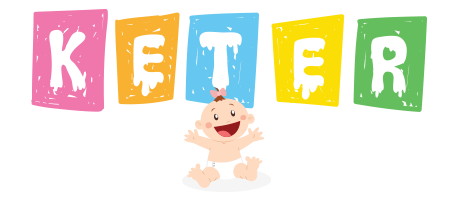
What is teething?
Teeth are when your baby's teeth begin to pass through the gums. Another word for this is odontosis.
When will the baby start to have teeth?
Most babies start cutting their teeth between 4 and 7 months of age, but some start much later. There is no need to worry if your child's teeth fall out in a different timeline - it may be different for each child.
Tooth signs and symptoms
Symptoms can vary from child to child, but can include:
- Swollen and sensitive gums
- Nervousness and crying
- Slightly elevated temperature (less than 101 F)
- Knocking or trying to chew on hard objects
- Lots of saliva, which can cause a rash on the face
- A cough
- Tear off his cheeks or pull his ear
- Put your hands to your mouth
- Changes in diet or sleep
Teeth can be painful, but usually children do not get sick. Call your doctor if your child has diarrhea, vomiting, rash, fever, cough and congestion. These are not common symptoms of cracking.
You should also call a pediatrician if your baby's gums are bleeding or you see pus or swelling on your face.
The order of tooth eruption
When and how teeth are seen can vary from child to child and may depend on family history. But usually the two lower front teeth come first, followed by two opposite upper teeth and two on each side of these teeth. Then there are two on each side of the lower front teeth, then the first chairs appear. A total of 20 "baby teeth" will eventually be present, usually at 3 years of age.
Soothe baby teeth
What relieves a friend's baby may not work for you. You may need to try several things to help your baby feel better:
Something cold in your baby's mouth, such as a cold pacifier, teaspoon, clean wet clothes, or a solid (non-liquid) toy or tooth ring. Some experts claim that frozen toothbrushes are too cold and can damage your baby's mouth. Remember to clean toothbrushes, linens, and other items after your child has used them.
If your baby is over 6-9 months, you can also offer him cold water from a cup.
Massage your gums by gently rubbing them with a clean finger. If the teeth have not yet entered, you can let the child bite your finger. If you are breastfeeding your baby, try soaking your fingers in cold water and massaging his gums before each feed. This may prevent them from biting their nipples while breastfeeding.
Treatments to be avoided
Do not put anything in your baby that is not specifically approved to soften tooth cutting. Certain products called toothpaste or comb are not a safe choice, including the following products:
- Fill with fluid that can tear and spill
- Made of a fragile material like plastic, which can lead to asthma
- They are frozen - they may be too hard for the baby's mouth
- Another reason to be aware of the material used to make teeth: some can be made with harmful substances like lead. Look for the rubber ones.
Dental necklaces
Child health experts do not recommend cutting necklaces. They are dangerous: they can choke a child. They can also suffocate if the necklace breaks and the beads are swallowed.
If you decide to use it, make sure:
- Put it on your wrist or ankle, not around the baby's neck.
- Always watch your baby when you are wearing it.
- Take it out when you are not looking at your baby, even for a very short time.
You may have heard that amber necklaces release painkillers when heated. This has not been proven and doctors say it is not a good idea to use them.
Teething Medicine
The medicine you apply to your baby's gums may not help stop toothache. It washes quickly in the mouth and can wash the back of the throat and make swallowing difficult.
Stay away from over-the-counter gels and liquids that contain the benzocaine component. The FDA states that this ingredient should not be given to children younger than 2 years of age. It can have rare but serious side effects.
A small dose of baby pain relief, such as acetaminophen, can help your baby. Do not take ibuprofen for babies under 6 months of age and talk to your doctor before giving any medicine to the baby. Use exactly as your doctor says.
Teeth can be rough for you and your baby at first. But it will be easier if you learn to clean every new tooth that comes out.
How to care for your child's new teeth
Good oral hygiene is important before your baby has teeth:
Clean the gummy babies at least once a day with a damp cloth or piece of gauze until the teeth start to come out.
When they have teeth, clean your baby's mouth in the same way at least twice a day. After feeding, it's a good time.
After their first birthday, you can start using a baby toothbrush with soft bristles with water and a small amount of fluoride-free toothpaste. You can also start using tooth floss between your teeth.
Your pediatrician will check your baby for tooth decay and determine if you need to see a dentist before 1 year of age. In most children, the pediatrician can continue to check their teeth until they are 3 years old.
